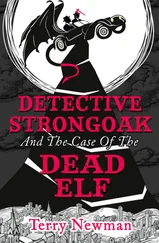William Brodrick - The Gardens of the Dead
Здесь есть возможность читать онлайн «William Brodrick - The Gardens of the Dead» весь текст электронной книги совершенно бесплатно (целиком полную версию без сокращений). В некоторых случаях можно слушать аудио, скачать через торрент в формате fb2 и присутствует краткое содержание. Жанр: Триллер, на английском языке. Описание произведения, (предисловие) а так же отзывы посетителей доступны на портале библиотеки ЛибКат.
- Название:The Gardens of the Dead
- Автор:
- Жанр:
- Год:неизвестен
- ISBN:нет данных
- Рейтинг книги:4 / 5. Голосов: 1
-
Избранное:Добавить в избранное
- Отзывы:
-
Ваша оценка:
- 80
- 1
- 2
- 3
- 4
- 5
The Gardens of the Dead: краткое содержание, описание и аннотация
Предлагаем к чтению аннотацию, описание, краткое содержание или предисловие (зависит от того, что написал сам автор книги «The Gardens of the Dead»). Если вы не нашли необходимую информацию о книге — напишите в комментариях, мы постараемся отыскать её.
The Gardens of the Dead — читать онлайн бесплатно полную книгу (весь текст) целиком
Ниже представлен текст книги, разбитый по страницам. Система сохранения места последней прочитанной страницы, позволяет с удобством читать онлайн бесплатно книгу «The Gardens of the Dead», без необходимости каждый раз заново искать на чём Вы остановились. Поставьте закладку, и сможете в любой момент перейти на страницу, на которой закончили чтение.
Интервал:
Закладка:
For her part, she’d waited, as usual, on Lawton’s Wharf. When George didn’t turn up, she went to the police, who traced the hospital; but by the time Elizabeth got there, he’d already slipped out of the ward. ‘I knew you would come back here,’ she said affectionately In her hands were his two plastic bags retrieved from the docklands. There and then, beneath the fire escape, she read out the last couple of volumes that covered the known; and together they approached the unknown.
The line wasn’t clear-cut. The weeks prior to the attack had been shaken. The events were jumbled and some were missing, but thankfully George’s written account was detailed. It provided scaffolding for his memory With gratitude, he rebuilt the past in his mind around the pieces that he’d saved. When Elizabeth had finished reading she said, ‘You have to do this every day to keep what you’ve got.’ Then they went to Carlo’s. They sat down without ordering. There was going to be no toast and no hot chocolate.
‘It’s over,’ said Elizabeth shortly ‘It’s time you came off the street, whether you’re ready or not; and it’s time we let Riley go.
The mention of that name was like a stab, an injection to the heart.
‘I’ve sorted out a rehabilitation clinic,’ said Elizabeth with authority. ‘You can stay there for as long as necessary.’
‘No thank you.’ George went to the counter and asked for toast and hot chocolate. He came back with a tray and said, ‘I’m going back to Nancy.’
George didn’t go to the shop for a while. He studied his notebooks. By pooling memories with Elizabeth, he brought his own up to date. Then he went to the Embankment, to the other people on the street. He was like a man with a new toy or a strange weapon: he had to get used to handling his changed mind. He had to learn again how to relate. It took practice and patience. Rather than write events down at the end of the day he did it soon after they happened. He made lists of things to be done. And throughout the day he made frequent reference to both. It was like turning a timer before the sand ran out. Each minute became precious even though he knew it was ultimately lost. The essential had been written down, so he could let the rest go. Of course, the notebook and the lists covered no matters of importance – nothing that happened to George was important – they dealt only with the commonplace, but in this way George became confident, once more, with the little things. He still slept at Trespass Place, and Elizabeth came in the evening. She tested him on his current list. Gradually he began to do quite well. If there had been a prize, he’d have won it. And when he’d got the hang of himself, he went back to the warehouse on the Isle of Dogs. And he went back to Nancy’s shop in Bow.
On his first day, they sat by the gas fire, and George told her he’d lost half his mind; and that he’d lost his son: it happened naturally because the recent past had gone, and his loss was ever fresh. But it was also somehow necessary to tell Nancy because she was close to the man responsible. She listened, forgetting to take off her yellow hat with its black spots. He watched her through his goggles, knowing that she thought him blind, that her expressions of horror went unseen.
The following morning, thinking George wouldn’t remember what she was about to say Nancy told of her life at Lawton’s, how she’d met Riley, and about a trial… but she left out the details, and kept it vague, just as George had done when talking of his son. That evening, George wrote nothing down of the day’s revelations but one sharp fragment survived into the morning: ‘He’s not a bad man, you know He’s just… lost.’
The receipt books were blue, as Elizabeth had suspected. George eventually found them in shoeboxes on a bookcase opposite the filing cabinet. Taking them was difficult, because Elizabeth had been insistent that she needed a selection from each business covering the same period of time. ‘Don’t just grab them, look at the dates.’ So George spent about two weeks snatching glimpses whenever Nancy dealt with a customer or went out to get some milk. One morning he placed four of them in his plastic bag. That night Elizabeth was tense when she took them.
‘You do realise that this is your only chance?’
George nodded, not quite following.
‘I hope I’m right,’ she said anxiously ‘so that you’re the one who finally traps him.’
‘And if you’re wrong?’
‘I’ve another string to my bow’
George nodded again, utterly baffled.
Elizabeth returned with the books in the morning darkness.
‘Well?’ said George to the dark outline.
‘I need more time,’ she said, and the shape vanished as if it hadn’t been there.
8
The home of Mr and Mrs Bradshaw stood within a leafy, secluded terrace in Mitcham. Porches and windows were situated in identical positions like enormous stickers. Anselm hadn’t knocked, but the door opened slowly, and a slim woman in her sixties with ruffled hair emerged holding a paintbrush. Her skin was freckled with emulsion. The sleeves of a large, shapeless shirt were loosely rolled to the elbow She looked at Anselm as if he were familiar.
‘Mrs Bradshaw?’
She wiped paint from her brow with the back of a hand and said, ‘She told me you might turn up one day’
‘Sorry?’
‘Mrs Glendinning.’ She roused herself, like she was about to get to work. ‘I suppose you’d better come in.
Anselm entered the hallway. The carpet was covered with sheets. The rucks lapped against the skirting board like milky floodwater. He followed Mrs Bradshaw into the sitting room. All the furniture was draped and the walls were bare. She’d been painting a ceiling rose. The ladder stood beneath it, with a tin on a stand. They stood regarding each other, Anselm’s fingers moving impulsively behind his back; Mrs Bradshaw remained quite still, the paintbrush at her side.
‘Mrs Glendinning has died,’ said Anselm. ‘She left me a key to a small red case, which I have opened. I am brought back to a trial I had forgotten, and a letter I had never seen. And I have learned of your great loss.’ Instinct kept Anselm away from John’s name. He watched her, willing her head to rise, for a mighty hand to tear away the drapes. He said, ‘I want to say sorry.., to you and your husband… only I don’t know how to reach the extent of what has happened to you both. If I’d read sooner what you’d written, I would not have waited so long in coming here.’
Mrs Bradshaw began tugging a button on her shirt. It was blue with a British Gas badge on one side. She seemed foreign to her own home. It was as if she’d just turned up to read the meter.
‘Mrs Glendinning told me you’d become a monk,’ she said. ‘I asked her not to tell you.
‘Why?’ asked Anselm.
‘Because I didn’t want to disturb your peace.’ She spoke as if he’d found what she wanted for herself. ‘And I felt ashamed of what I wrote.’ The paintbrush began to swing slightly ‘I showed myself up for what I am. A bitter woman.’
Anselm shrank from the self-loathing. ‘You were honest, that’s all.’
‘I expect like Mrs Glendinning you want to see George,’ she said remotely ‘But he’s gone, I’m afraid. He’s a lost man.’
Anselm could feel the depth of quiet in the house. His chest grew tight and he felt he was drowning. This was the first time he’d met someone from ‘the other side’ in a case he’d won. Apprehensively he listened.
‘After the trial,’ said Mrs Bradshaw, ‘George lost his job. He was dismissed for gross misconduct. Not for the fiasco at court, but because he’d got involved with those kids in the first place. He should have kept his distance… like a lawyer.., but he didn’t, he couldn’t. Afterwards he fell to pieces, here, at home. Then we lost John. I don’t know what happened – but George did, only he couldn’t tell me. No, that’s not true’ – she was struggling, as she’d struggled then; with her mind and body she twisted in her big shirt – ‘George couldn’t have known, but he felt responsible.’ She breathed evenly, becoming still. ‘One Saturday night John went out. He didn’t come back. He’d gone to Lawton’s Wharf__’
Читать дальшеИнтервал:
Закладка:
Похожие книги на «The Gardens of the Dead»
Представляем Вашему вниманию похожие книги на «The Gardens of the Dead» списком для выбора. Мы отобрали схожую по названию и смыслу литературу в надежде предоставить читателям больше вариантов отыскать новые, интересные, ещё непрочитанные произведения.
Обсуждение, отзывы о книге «The Gardens of the Dead» и просто собственные мнения читателей. Оставьте ваши комментарии, напишите, что Вы думаете о произведении, его смысле или главных героях. Укажите что конкретно понравилось, а что нет, и почему Вы так считаете.












